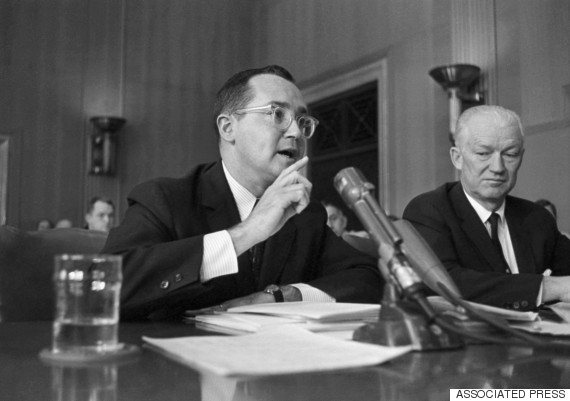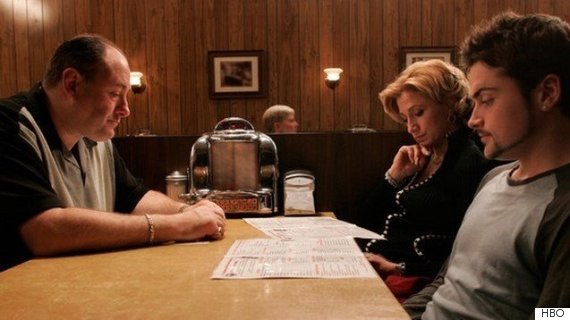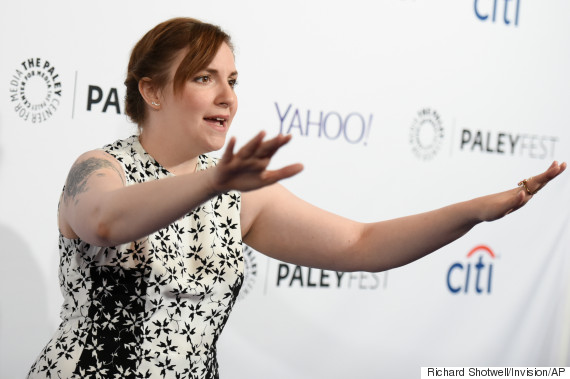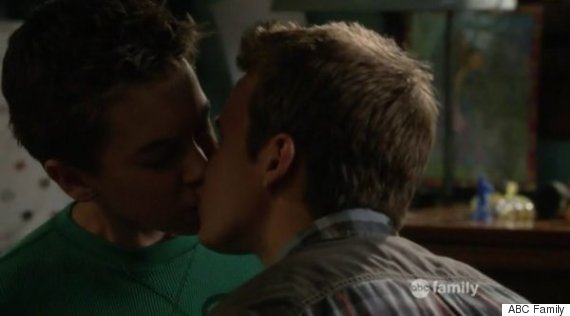There's a looming guilt associated with watching TV. The idea that it's lazy and not worthwhile is embedded most clearly in the phrase "binge watching." The sense that we ought to be doing something "better" with our time hovers over the act, like an anxious mother peaking into the living room, suggesting you go play outside for once.
There are plenty of studies stating the health risks of watching TV (and spending the grand majority of our lives sitting down, really). Certainly, if you'd like to avoid heart disease, running a mile is a safer bet than sitting down for an episode of "The Bachelorette." But in terms of the intellectual effects, as TV has gotten better, so has the experience of watching it. The golden age of TV doesn't just mean shows have improved. Watching TV has become good for you.
The non-linear viewing experience means we are no longer slaves to TV.
Let's explore this a bit. The most obvious factor in the way audience interaction with TV has changed is the rise of the non-linear viewing experience. A mere 15 years ago, if you wanted to watch a show, you had to be home, planted in front of the screen for that hour or 90 minutes. Choosing to follow a series came in place of other activities that might have been. We didn't just watch TV, we were slaves to it.
We control our viewing of TV, when we watch it and how we watch it. -- Jeanine Basinger
The change began with the DVR and accelerated exponentially with streaming services. Now, we can watch an episode of a show, or three or four, in our downtime. We can cover entire seasons while sitting on a plane or walking on a treadmill. TV is no longer bogging us down. It's filling the empty spaces in our schedules.
"I think that’s a very 'old people' view, that we’re all just sitting around on our couch and eating cookies," Professor Jeanine Basinger, a film historian at Wesleyan University, told The Huffington Post. "That’s very 1960s. I don’t think people do that anymore. We can control our viewing of TV, when we watch it and how we watch it."
Newton Minow testifying before a Senate Communications subcommittee.
Infinitely more channels and a closer-watching audience has made TV better than ever.
That more passive mode of watching Basinger describes is the sort of thing Federal Communications Commission Chairman Newton Minow was talking about when he famously called TV a "vast wasteland" in his 1961 address to the National Association of Broadcasters. We've long since been unshackled from the couch, though far more has changed since his condemnation over half a century ago.
"Why is so much of television so bad?" Minow asked his audience. The answer then was varied; blame was largely placed on advertiser demands and the race for higher ratings. But there was one key thing he missed: TV was very new. We hadn't had enough practice making it (or watching it, for that matter) and there simply wasn't enough of it yet.
Now, there are massive amounts of content available. If you count revisiting the shows you missed before TiVo -- children of the '90s will remember there was a time when "Gilmore Girls" was on the same night as "Friends" -- the options are practically limitless. TV has also reached a level of quality that has only been skyrocketing since Tony Soprano died (or maybe didn't) to the tune of "Don't Stop Believing."
A still from the final episode of "The Sopranos."
As David Carr said in a piece for The New York Times last spring, there is now so much good television, it's almost hard to keep up. "The vast wasteland of television has been replaced by an excess of excellence," he wrote.
That we are in the so-called "golden age of TV" has become a sort of fact in the minds of entertainment writers, legitimized if only by the existence of its Wikipedia page. You could argue that each decade since TV's inception has been a new golden age of sorts. One thing is for certain: TV is better than it ever was. The new role of the showrunner and the advent of the streaming service are two major factors, though, maybe the biggest propellant is the fans.
It turns out we have watched 10,000 hours of TV by the time we’re 8 years old. -- Grant McCracken
Worlds are more carefully crafted than ever before. They are geared to reward viewers in long game payoffs and inside jokes. And there's a reciprocal interaction at play between the creator and the consumer.
"[Viewers are] paying attention to fine details, because the showrunners are crafting shows so much more carefully than they used to," Grant McCracken, an anthropologist who studied viewing behavior in partnership with Netflix, told HuffPost. "The big change here is that TV just got dramatically better." And we've subsequently become dramatically better at watching.
"Malcom Gladwell says it takes 10,000 hours to get good at something," he added. "So, I said to myself, 'At what point have we watched 10,000 hours of TV?' And it turns out we have watched 10,000 hours of TV by the time we’re 8 years old."
McCracken cited the way creators respond to audience reactions, rewarding those invested in the show and even sometimes altering content after a particularly loud response from viewers.
When viewers rallied against that godawful Fifty Shades of Grey style storyline that took hold of Kalinda's husband on "The Good Wife," creators Michelle and Robert King were able to nix the character nine episodes into the season. When "Girls" was criticized for being too white, Lena Dunham responded, promising to make steps to diversify. As "Empire" co-showrunner Danny Strong put it at the ATX Television Festival Panel for the show, the process is not quite "choose your own adventure," but there is a increasing element of social watching.
Lena Dunham on the 2011 PaleyFest red carpet.
Viewership, once passive, has become an increasingly active experience.
With the advent of social watching, we're seeing an almost reciprocal interaction between a more active mode of fandom and the conspicuous improvement of television. This is true in terms of making suggestions for plotlines (or less white casts) and also the way shows are written to begin with, catering to the closer level of attention exhibited by fans.
TV is regarded as the avatar of barbaric new media, but more so than ever people are inclined to gather around to talk about television shows. Gathering to talk about them is a deliberate, communal experience. -- Jeff Nunokawa
"As TV got better, viewers got smarter, and as viewers got smarter, TV got better," McCracken said. "The thing that made them so passionately attentive to the show was listening to subtle signals and small gestures."
He cited the rise of fanfiction, discussions on social media and increasing recap coverage. TV may be the one medium capable of catering to our ever-shrinking attention spans.
"Television both affords and repays much more patience and subtle sense [for] a cumulative narrative. There is a longer narrative arc available on TV," said Jeff Nunokawa, a professor of English literature at Princeton University. "In a culture which seems increasingly impatient with long form, people are much more alert to and willing to engage and challenge."
More than two decades after Minow's dissent, TV was met with condemnation from media critic Neil Postman. In his 1985 book Amusing Ourselves to Death, Postman argued that TV was a wholly passive form of entertainment.
“Americans no longer talk to each other, they entertain each other," Postman wrote. "They do not exchange ideas, they exchange images. They do not argue with propositions; they argue with good looks, celebrities and commercials."
What Postman was hitting on was the totally mindless participation required of a viewer. Whereas reading a book or listening to a radio show required the audience to conjure up imagery, everything was provided in TV and therefore, as he saw it, intellectual stimulation was no longer possible.
TV has become our culture. TV is to Americans what opera was to Italians at a certain moment. -- Grant McCracken
He's still correct about TV being an exchange of images. As Basinger put it, "Everything is images for us today. Television is just another venue." And yet it's the participation with the images that has changed. Americans are talking to each other about TV more than ever before. All of these changes have led to a greater shift, wherein TV does not just impact culture, but is integral to it.
"TV has become our culture," said McCracken. "TV is to Americans what the opera was to Italians at a certain moment. It is the place we ask questions. It is the place we gather to contemplate big questions, to participate in these narratives."
A still from "The Fosters."
TV is now a definitive space for starting a dialogue around social issues.
The most critical aspect of this new mode of watching TV is that it's starting a dialogue, introducing a wider audience of viewers to social issues they might not otherwise be exposed to and allowing for an automatic forum for them to be discussed.
Nunokawa drew an interesting comparison between conversations about TV and family readings of Victorian serials. The reason for the communal readings was that books were expensive and it made sense for them to be shared. TV is cheap and prolific, but has similarly forged an automatic connection that naturally launches group discussion.
"TV is regarded as the avatar of barbaric new media," he said. "But more so than ever, people are inclined to gather around to talk about television shows. Gathering to talk about them is a deliberate, communal experience."
"TV has become a global forum of discussion, information, entertainment and intellectual stimulation," Basinger agreed. "Watching TV doesn’t eliminate your intellectual life. It actually adds to it."
This past season alone, we were introduced to the youngest ever same-sex kiss on television ("The Fosters"), a powerful stance against domestic violence ("Nashville"), the dismantling of the Western beauty myth ("How to Get Away with Murder"), a nuanced discussion of sexual abuse ("Scandal") and a truthful approach to abortion ("Girls"), to name just a few examples. These are all items that spurred conversation where it may not otherwise have existed. Representation is important and exposure fosters acceptance. More than ever, TV is the source for both.
"We're inclined to apologize for watching a lot of TV, because in our culture we were told it was bad," McCracken said. But across interviews he conducted during his research, McCracken saw fewer and fewer people using the "binging" metaphor, and fewer and fewer Americans expressing guilt over marathoning a show.
It's almost as if they realized they were doing something that was good for them.
Illustration by Priscilla Frank.




